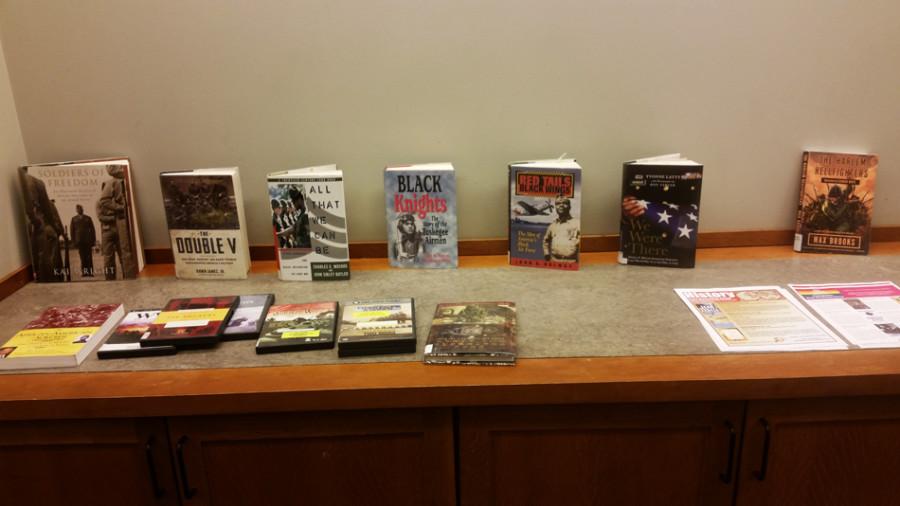Evanston residents discuss role of African-American soldiers in World War I
Yaqoob Qaseem/The Daily Northwestern
The Evanston Public Library hosted a book discussion Wednesday about African-Americans serving in World War I. Community members discussed the Harlem Hellfighters, the first African-American regiment to fight in the war.
February 18, 2015
The Evanston Public Library held a discussion Tuesday centered on a novel about the first African-American regiment sent to battle in World War I.
Lesley Williams, EPL’s head of adult services, said the discussion is a combination of two programs at the library: the monthly discussion group on African-American literature and the library’s yearlong program focusing on WWI. The WWI programming, which started in August 2014 and continues until August 2015, has also included discussions of other novels and films and includes lectures and presentations organized in partnership with the Evanston History Center.
The African-American literature group talked about the novel “A More Unbending Battle: The Harlem Hellfighters’ Struggle for Freedom in WWI and Equality at Home” by Peter N. Nelson on Tuesday.
“Reading about World War I is incredibly upsetting for me,” Williams said. “Most people don’t even have a really strong sense of what the issues were with World War I.”
African Americans were involved in America’s wars throughout history and treated unfairly in the process, Williams said. They made sacrifices each time with the unfulfilled hope of gaining full civil rights, she said.
“The question always is how much is going to be enough? At what point will military service really help African Americans get their rights and get the respect they deserve?” Williams said.
The discussion touched on the motivations of the African-American soldiers, the reasons behind the obscurity of the regiment’s story, the hardships faced by the soldiers after the war and the reception of the soldiers abroad.
“I always leave with something to take away,” said Theresa Cameron (Communication ’88), a two-year member of the discussion group. “I make connections in my life experience to what I’m reading,”
Mike Evans, another member of the discussion group, said the book improved his knowledge on the topic. He specifically learned more about post-traumatic stress disorder, he said.
“I learned a lot from everyone,” Cameron said. “We all bring something different.”
Email: [email protected]
Twitter: @yaqoobqaseem


